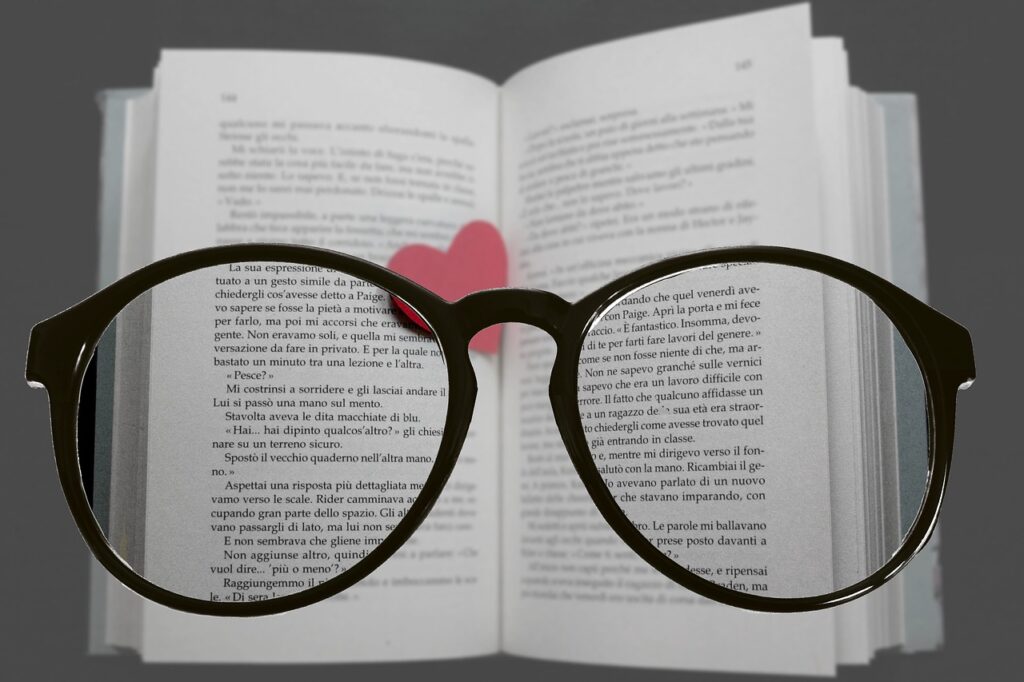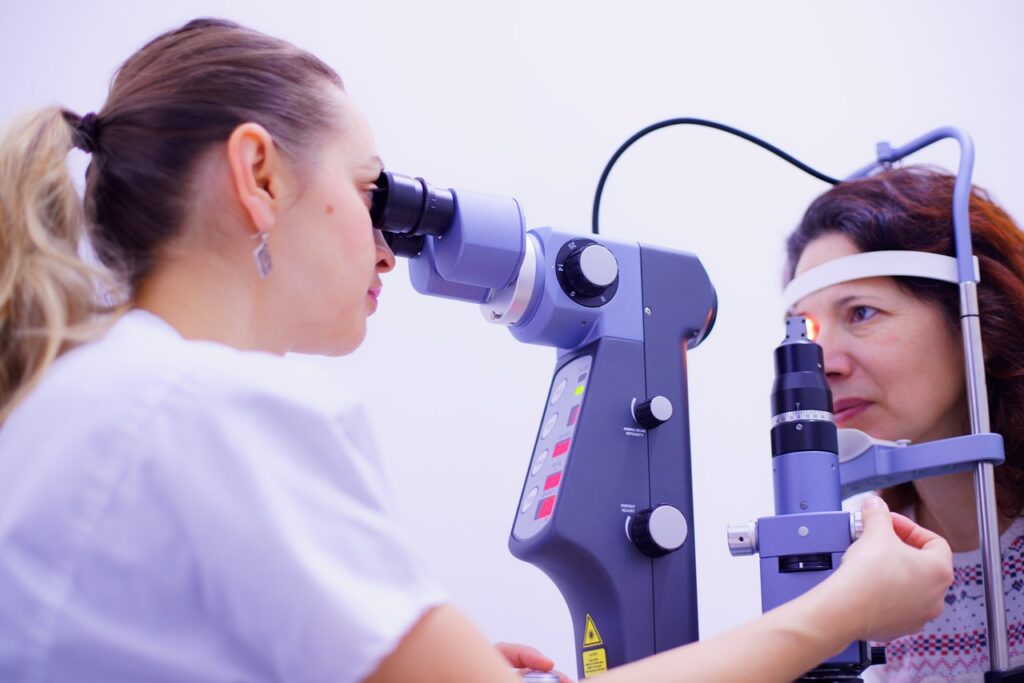If you’ve ever wondered whether you’re experiencing the symptoms of needing glasses, you’re not alone. As we get older, it’s common for our eyes to undergo changes that affect how well we see. Whether it’s reading small print or struggling to see things clearly at a distance, these issues can impact our daily lives. In this blog post, we’ll walk you through some of the common symptoms of needing glasses, and how to recognize them before they interfere too much with your routine.
Common Signs You Might Need Glasses
Your eyes may be telling you something, and it’s important to listen. One of the first symptoms of needing glasses might be that you find it hard to read small text, especially when you’re reading your phone or a book. If you notice blurred vision, squinting, or holding things farther away to make them clearer, this could be a sign that your vision isn’t as sharp as it once was.
Sometimes, this issue can sneak up on you, especially with age-related conditions like presbyopia, where the eye’s ability to focus on close objects decreases. If you are struggling with reading, you might find that reading glasses help improve clarity. While it’s easy to brush off these changes, ignoring them could result in eye strain and headaches later on. These problems can be addressed with eyeglasses or other corrective lenses tailored to your needs.

Blurry Vision at a Distance
Another major sign that you may need glasses is blurry vision when looking at things from a distance. If you’re constantly squinting at road signs or struggling to see the TV clearly, these are indicators that you might need corrective lenses. Astigmatism, for example, can cause blurry vision at any distance, and it’s something that an optometrist doctor can diagnose.
Even if you can see well up close but find it hard to focus on things further away, your vision might be impaired by refractive errors. A visual acuity test is the best way to determine whether your blurry vision is caused by an issue like nearsightedness or farsightedness. Corrective options such as prescription lenses for glasses can make a significant difference in improving the sharpness and clarity of your sight.
Tired Eyes and Headaches
If you’re feeling constant eye strain, you may be dealing with tired eyes with headaches, another symptom of needing glasses. If you spend long hours in front of a screen or reading, your eyes might start to get fatigued and ache. These symptoms can be a result of your eyes working overtime to focus, especially when your vision isn’t optimal.
Long periods of eye strain can lead to discomfort, and many people who experience this often find that they develop frequent headaches. These symptoms often prompt people to seek out blue light glasses or magnetic glasses frames, which help reduce the strain caused by looking at digital screens. If you spend a lot of time working on your computer, these glasses can be a game-changer.
Also, if you notice a significant amount of glasses fogging up when transitioning from the cold outdoors to a warm room, this could indicate a change in your vision needs or just the fact that you’re wearing outdated lenses. With the right lenses or glasses, fogging up issues can be significantly reduced.

Difficulty Seeing at Night
Many adults notice that their vision becomes more challenging when the sun goes down. Night blindness, or night blindness, is a common symptom of needing glasses, especially if it feels harder to see while driving or walking in low-light conditions. If you find it hard to navigate in the dark or have difficulty seeing street signs or other people, your eyes may be struggling with low-light vision.
This condition can also be exacerbated by other refractive issues such as astigmatism or cataracts. Fortunately, getting a pair of eyeglasses or bifocal glasses designed specifically for low-light conditions can help you regain clarity at night. If you experience frequent difficulties in the dark, visiting an optometrist doctor is a good first step toward addressing the issue.
When to Visit an Optometrist
When you start noticing these symptoms of needing glasses, it’s important to visit an optometrist doctor for a comprehensive eye exam. A professional can conduct a visual acuity test and help determine if you need glasses, contact lenses, or even a specialized prescription, such as color blind glasses explained for those with color vision deficiencies.
If you’re dealing with vision problems related to age, your optometrist might recommend bifocal glasses uses or offer personalized advice on the best type of glasses frames for your face. Don’t hesitate to ask your eye care professional about the best solutions for your specific needs. They may also advise on how to protect eyes from UV, a key factor in maintaining eye health as we age.
For people who wear glasses, regular eye exams are vital in ensuring that your prescription is up-to-date and that you’re using the best type of lenses for your needs. Additionally, the right prescription lenses for glasses can help avoid headaches and further strain.

Conclusion
In conclusion, the symptoms of needing glasses are often subtle at first but can gradually become more noticeable. From blurry vision to eye strain and difficulty seeing at night, your eyes may be sending you a clear message that it’s time for a change. Don’t wait too long before seeking professional help – your eye health is essential. If you’re unsure about the best type of prescription glasses or other solutions, check out our website at optics4less.com, where we offer a wide range of options for all your eyewear needs.
We’d love to hear from you! Have you experienced any of these symptoms? Leave a comment below and let us know how you’re managing your eye health.

